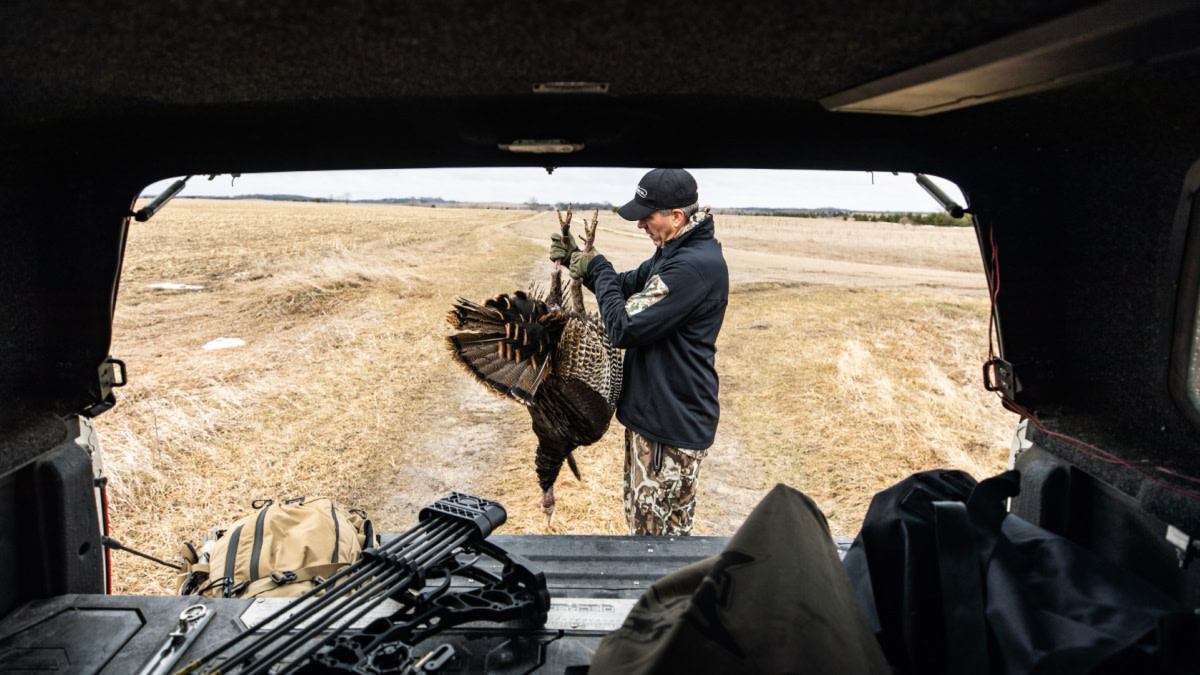
Sunrises, ticks, and mistakes are all parts of turkey hunting. Some days the planets align and we can sling a dead turkey over our shoulder regardless of how many errors we made. But most other days we leave the woods frustrated and empty-handed. Sometimes it’s because the turkeys simply didn’t want to cooperate. Other times it’s because we screwed something up along the way.
Failing to thoroughly scout your hunting areas or pattern your turkey gun are cardinal sins, and calling too loud and too often are probably the biggest gaffes of them all. However, hunters make far more subtle mistakes that can be just as ruinous. Here’s a look at three common issues and how to correct them.
Calling Too Early
Whether it’s opening day or the last of the season, it’s important to understand that you’re stepping into a world where a turkey lives year-round. You’re an uninvited guest to the party and shouldn’t be the first one to introduce yourself.
If you’ve done your scouting and know where birds are roosted, it can be awful tempting to make the first move. Many hunters take the bait and throw out a tree yelp or two, hoping a gobbler falls off the limb into their lap. Worse yet, when soft calls go unanswered, some hunters ramp things up and call incessantly, which is never a good idea. Nobody likes a loudmouth, turkeys included.
Think of it like attending church. Calling too early is like trying to preach from the back row before the service starts. It’s out of order and unnatural. The minute you pipe up, it’s all but guaranteed everybody in the congregation will turn around in unison and silently look in your direction.
It’s much the same in the turkey woods. Even when birds are silent they’re still reacting in some way to your calls. If you’re the first one to make a peep, it’s a red flag for every bird within hearing distance that something is not right.
If all is quiet while birds are on the limb, take the hint and stay quiet too. Resist the urge to call too early. Only join the conversation after turkey talk picks up on its own. Then, tread lightly and avoid shining the spotlight on yourself—becoming part of the congregation not the back-row preacher.
Not Being Ready
A hunt usually goes off the rails when things are slow and hunters let their guards down. It’s easy to get lazy, especially after gobbling dies down and the midday doldrums set it in. Even though you’re turkey hunting, you might be busy wondering who the Bears will draft or stressing about an upcoming deadline at work. When you least expect it, completely unprepared to shoot, is when a longbeard will show up.
If you’ve ever been in a quick-draw contest with a turkey, you know your odds of success aren’t great. That said, make sure your gun is in a ready position whenever you sit down. It might be uncomfortable and it might all be for nothing. But not being able to pull the trigger because you’re not ready or out of position happens a lot more than most hunters think.
Being unprepared also applies to calling, especially when you’re running and gunning across the countryside. In these scenarios, calling before you have a solid setup plan established is a recipe for disaster. In most cases, if a gobbler answers, you’ll sit down wrong, be out of position, and stick out like a sore thumb. Make it a habit to think about your setup before calling and you’ll never be caught off guard.
Also, you shouldn’t ever call while you’re out in the open or skylined on a ridge. Take care to call from shady, out-of-the-way spots where quick access to cover can conceal your movements. If you call while you’re exposed and a tom answers, the mad dash you make toward cover will often send him running, too.
Being Too Patient
I’m a huge proponent of waiting patiently in the turkey woods. When time allows, I’ll play chicken with a gobbler all day long, hoping for him to break.
But if you’re busy chasing kids and working a nine to five job, it’s rare to have a full day to just hunt. And, when you have to make every second count, you can’t sit around and wait for things to happen. There are times when you’ve got to take the fight to the birds.
Through the years I’ve found it’s a huge mistake to always let the bird dictate how a hunt progresses. I’ve also discovered that stalking a bird is just as challenging and equally rewarding as calling a bird. In fact, I believe aggressive maneuvers such as crawling, stalking, or otherwise getting after a bird are hunting skills that are just as important as calling.
For decades, old-school turkey hunters turned their noses up at this tactic. They believed real hunters called in their birds. I was reared in this tradition, but long ago I decided I liked killing turkeys too much to always sit back and let them dictate the action.
Whenever I set up, I make sure my turkey vest and other gear is unhitched so I can easily slide out of it in case I need to go prone. Also, I wear camo pullover shirts with no buttons or zippers that can get caught in grass, sticks or other unwanted debris, making it easier to slide on my belly.
Using a turkey fan mount to approach a bird—often called fanning or reaping—is a newer tactic that’s gained popularity in the past decade or so. Where legal, it can provide an exhilarating hunt. However, if you don’t have a fan mount or if you’re hunting public ground where hiding behind a real-life turkey fan isn’t a wise choice, don’t lose hope. You don’t need a fan. You just need grit and determination to hit the deck and get the job done.
Years ago, I was on a hunt in southwestern Missouri with Tad Brown, a masterful caller who has designed numerous turkey calls throughout his long career. We ran into a situation where a couple Easterns absolutely wouldn’t break from the shade on the opposite side of a Missouri pasture. It was the final afternoon of our hunt, so instead of playing the waiting game, Brown suggested I start crawling.
It took some work to scootch 100 yards through ankle-high grass, but when I held the bird up for Brown to admire, he slapped me on the shoulder and said some words I’ll never forget: “Sometimes you have to crawl ’em instead of call ’em. Don’t let anyone tell you different.”
Don’t Stop Believing
Turkey hunts rarely go according to plan. Call me a pessimist, but I’ve been burned by enough birds that I expect things to go wrong. You should expect them to go wrong, too. And when they do, turn unsuccessful hunting trips into successful recon missions.
Take note of everything from which way the turkeys pitched down off the roost to which calls they liked or didn’t. Take in the lay of the land and make a list of potential setup locations. Combined with learning from your mistakes, these little details will aid your effort the next time out, keeping you one step ahead of the birds and that much closer to success.
Feature image via Captured Creative.






